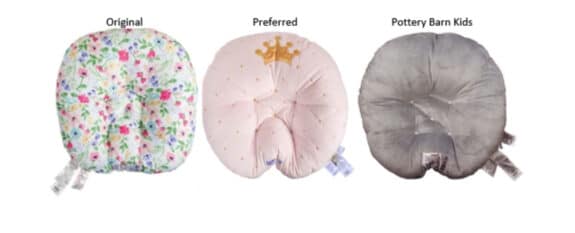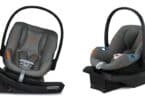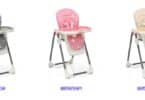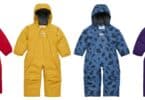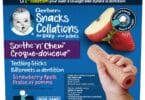In September of 2021, federal officials issued an urgent warning regarding a popular product, the Boppy Newborn Lounger: stop using them IMMEDIATELY. At that time, the padded pillows had been linked to the deaths of eight infants. More than three million of them were recalled.
The Consumer Product Safety Commission (CPSC) wanted to take matters a step further; some experts believed that similar products posed the same risk, so they wanted to issue a sweeping regulation on all infant loungers. Red tape and lash back from manufacturing companies prevented them from taking such action.
One company, in particular, sued the CPSC after it tried to recall their product. They accused the agency of “overreaching” and claimed that the two deaths associated with their product were due to misuse.
Since then, 10 deaths have been linked to infant loungers. Investigations by NBC News turned up even more deaths, linking infant loungers to at least 26 deaths. Product safety experts say this is almost certainly an undercount, as autopsy reports do not always mention specific products.
“The death certificate is not clear, and if it doesn’t list the product, then you don’t know,” said NJ Scheers, a statistician and former CPSC staff member who reviewed NBC News’ methodology.
Red tape isn’t the only reason these products remain on the market; most are described as a place for baby to rest while they are awake. Of course, infants can fall asleep at any given moment. Some companies advise parents to “transition” their children once they fall asleep, but this doesn’t always happen. The results can be devastating for tired and distracted parents.
“You can’t put that burden on parents,” CPSC Chair Alex Hoehn-Saric said in a recent interview. “If you have a product that looks like it’s good for sleep, you can’t claim that it’s not a sleep product.”
Parents have started speaking up, and many are enraged that infant loungers remain on the market. Although the CPSC clearly has concerns over the safety of these products, they maintain that they have always advised parents to avoid leaving infants on or near soft items while sleeping. Additionally, the agency indicates they didn’t have what they needed to create and enforce new requirements on infant loungers and other, similar products.
“The Commission cannot act rashly,” CPSC Commissioner Peter Feldman said in a statement. “A rule that is stayed or overturned offers zero consumer protection.”
Carol Pollack-Nelson, a product safety consultant who has worked on behalf of industry and consumers, says caregivers might be tempted to use items that are even more hazardous if the loungers are no longer available. Lounger manufacturers maintain their stance: education is the best way to prevent future deaths. Consumer advocates say the products need to be eliminated.
“Waiting for that process to play itself out is ignoring what we already know,” said Nancy Cowles, executive director of Kids In Danger, a consumer advocacy group.
Some states refuse to wait for federal action. In New York, legislation introduced a statewide bill prohibiting the sale of infant loungers. Retailers and secondhand stores that offer them would be fined up to $500 for violating the ban.
“If we can’t make them safer, we’ve got to get rid of them,” said Dr. Warren Seigel, district chair of the American Academy of Pediatrics New York chapter.
“I do think the federal government moves a lot slower than the states, which is why we introduced the bill,” Democratic Assembly member, Amy Paulin, said. “The fact that New York will pass something will give impetus for the federal government to do the same.”
Related Articles:
- RECALL – 2,600 Baby Trend Hybrid 3-in-1 Combination Booster Car Seat Due To Fraying
- RECALL – 6,110 Janod Sweet Cocoon Activity Tables Due to Choking Hazard
- RECALL – 43,380 Delta Enterprise Corp. 2-in-1 Outdoor Kids Swings Due to Fall Hazard
- Mockingbird Expands Recall to Include 25,390 Single Strollers Due to Fall Hazard

